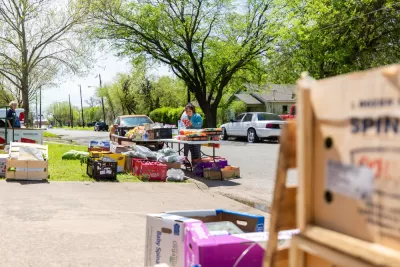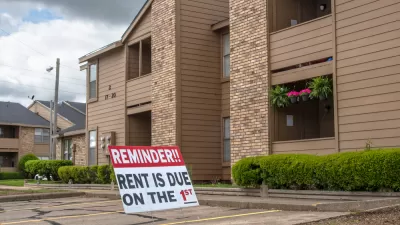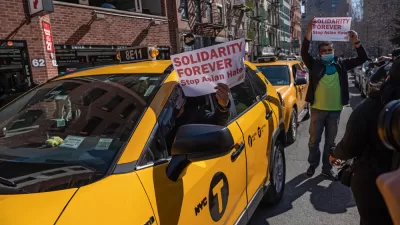A new report details how policymakers and community leaders can improve California's efforts to advance an equitable recovery from COVID by supporting and empowering community-based organizations in underserved communities.

The COVID-19 crisis continues to inequitably affect Californians who live in underserved communities. These residents are still experiencing the highest COVID-19 case rates and disproportionate economic impacts related to the ongoing crisis: outcomes that directly result from systemic racism and continued divestment.
Since the start of the pandemic, community-based organizations (CBOs) across California have stepped up to provide resources and services to those most in need. Specifically, CBOs have delivered food aid, housing assistance, personal protective equipment, translation services, vaccinations, and a variety of other indispensable supports to the communities they serve.
A new report, titled "How California’s Community-Based Organizations Filled the Gaps for Underserved Communities: Meeting the Needs of Racially & Ethnically Diverse Communities During the Pandemic," shows how policymakers and community leaders can improve California's efforts to advance an equitable recovery by supporting and empowering CBOs in underserved communities. This report was developed by the California Pan-Ethnic Health Network (CPEHN), ChangeLab Solutions, and Prevention Institute and includes contributions from 21 CBOs from throughout California.
Besides discussing the systemic inequities that underlie disparities in COVID-19 case and death rates, the report also documents the specific ways that CBOs have served and risen to the occasion during the pandemic. The report concludes with key recommendations for California policymakers and community leaders on a variety of topics and policy areas.
FULL STORY: How California’s Community-Based Organizations Filled the Gaps for Underserved Communities

Alabama: Trump Terminates Settlements for Black Communities Harmed By Raw Sewage
Trump deemed the landmark civil rights agreement “illegal DEI and environmental justice policy.”

Study: Maui’s Plan to Convert Vacation Rentals to Long-Term Housing Could Cause Nearly $1 Billion Economic Loss
The plan would reduce visitor accommodation by 25% resulting in 1,900 jobs lost.

Planetizen Federal Action Tracker
A weekly monitor of how Trump’s orders and actions are impacting planners and planning in America.

Grand Rapids Mayor Proposes Garage Conversion Plan
The mayor says allowing homeowners to convert garages to dwelling units could alleviate the city’s housing shortage.

Baltimore Ordered to Improve Sidewalk Accessibility
The city is one of many to face lawsuits for failing to comply with the Americans with Disabilities Act.

This Toronto Suburb Has More Bus Riders Than Columbus, Ohio
Brampton, Ontario used gradual improvements in service to prove that if you build it, they will ride.
Urban Design for Planners 1: Software Tools
This six-course series explores essential urban design concepts using open source software and equips planners with the tools they need to participate fully in the urban design process.
Planning for Universal Design
Learn the tools for implementing Universal Design in planning regulations.
Smith Gee Studio
Alamo Area Metropolitan Planning Organization
City of Santa Clarita
Institute for Housing and Urban Development Studies (IHS)
City of Grandview
Harvard GSD Executive Education
Toledo-Lucas County Plan Commissions
Salt Lake City
NYU Wagner Graduate School of Public Service





























